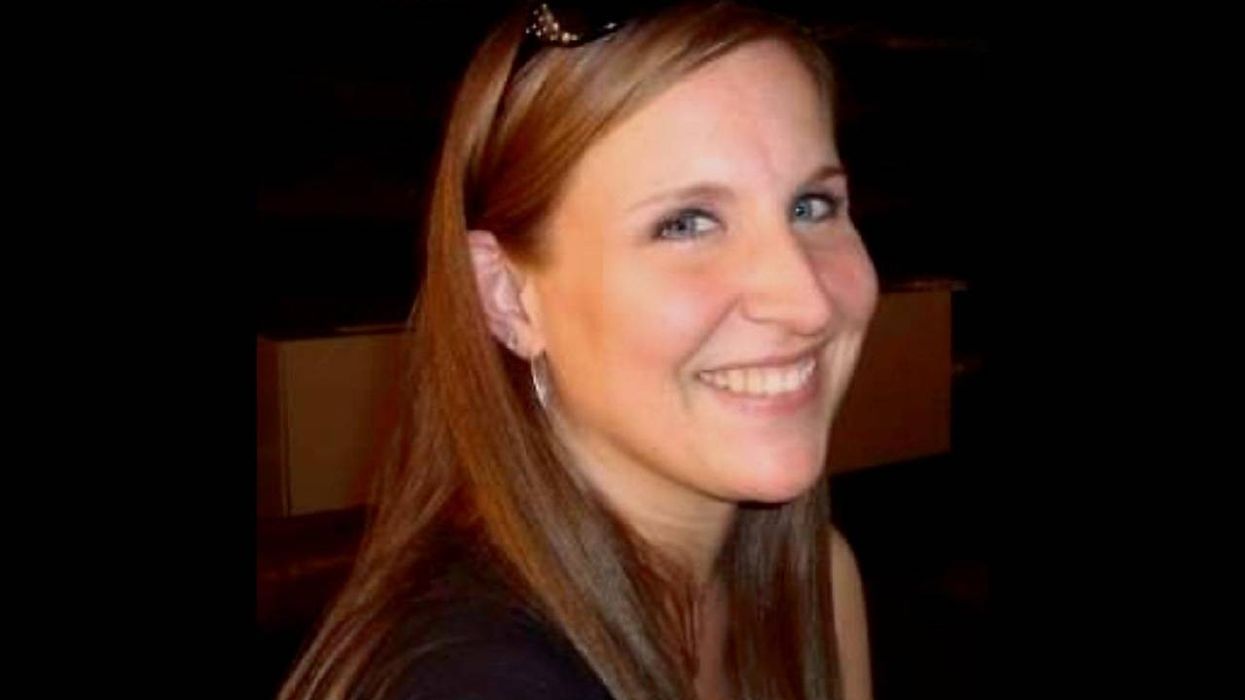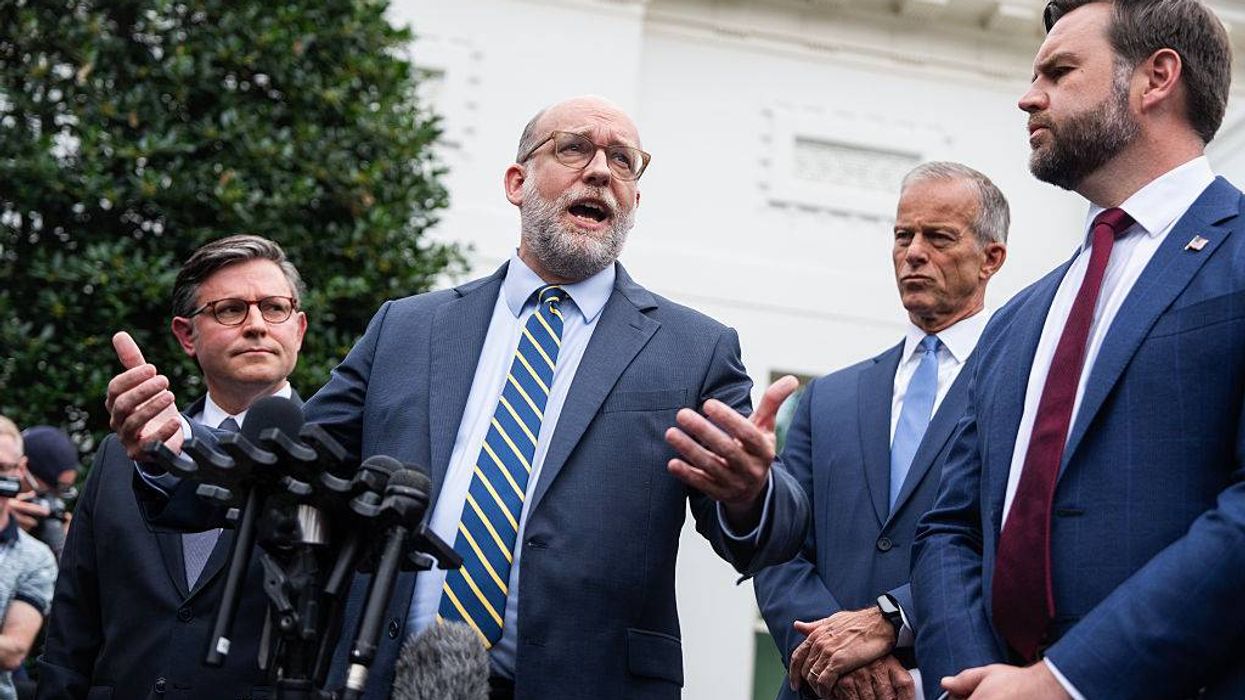May, 29 2013, 04:24pm EDT
For Immediate Release
Contact:
Sam Husseini, (202) 347-0020; or David Zupan, (541) 484-9167
Protests This Week Against Genetically Engineered Trees: "Disaster for Climate"
WASHINGTON
Following protests against Monsanto and genetically engineered food this past weekend, protests are ongoing in Asheville, N.C. against the International Tree Biotechnology Conference taking place there until June 1.

ANNE PETERMANN, globalecology at gmavt.net, also via Keith Brunner, keith at globaljusticeecology.org
Petermann is executive director of Global Justice Ecology Project, Brunner is media and communications associate with the group. They both focus on the group's STOP GE Trees Campaign and are both in Asheville. The group released a statement: "FuturaGene hosted a workshop on the future of forest biotechnology. The workshop was dominated by debate about what to do about public opposition to GE trees. Presenters lamented the fact that they were being targeted by protesters and that they could not get the public 'on board' with their research and business plans. ... Two of the major conference sponsors -- FuturaGene and ArborGen -- are moving forward with plans to commercially release GE eucalyptus trees in Brazil and the U.S."
Peterman said today: "ArborGen is genetically engineering non-native eucalyptus trees to be freeze tolerant to feed ethanol refineries and biomass burners under the umbrella of climate mitigation. They want to convert biodiverse and carbon-rich forests into vast plantations of invasive, flammable and water-draining eucalyptus trees. This will be a disaster for the climate."
See the backgrounder from the group [PDF]: "GE Trees, ArborGen and the Future of the World's Forests."
TOM LLEWELLYN, tom at realcooperative.org
Llewellyn is with Real Cooperative, a local North Carolina group that helped organize the weekend Monsanto protests and continuing GE tree protests this week. Among his concerns: "Genetically engineered trees would be grown for biomass -- in other words, to burn for fuel. One problem is that this will likely result in farmers growing more such trees and growing less food. Another major concern is that genetically engineered trees are perennials. So, unlike annual food plants that we could choose to stop using at some point, we'd be stuck with these trees, with their pollen getting into other forests, indefinitely and irreversibly."
Additional background: CBS News reports: "Marches and rallies against agricultural company Monsanto were held across the U.S. and in dozens of other countries on Saturday. Protesters say they want to call attention to the dangers posed by genetically modified food and the food giants that produce it."
On Tuesday, the Wall Street Journal reported on how European companies are cutting down U.S. forests in ways that would be illegal in Europe: "Europe's Green-Fuel Search Turns to America's Forests."
A nationwide consortium, the Institute for Public Accuracy (IPA) represents an unprecedented effort to bring other voices to the mass-media table often dominated by a few major think tanks. IPA works to broaden public discourse in mainstream media, while building communication with alternative media outlets and grassroots activists.
LATEST NEWS
In Blow to 'Fetal Personhood' Push, Alabamian Serving 18 Years After Stillbirth Gets New Trial
"I'm hopeful that my new trial will end with me being freed, because I simply lost my pregnancy at home because of an infection," said Brooke Shoemaker, who has already spent five years in prison.
Dec 30, 2025
While Brooke Shoemaker and a rights group representing her in court are celebrating this week after an Alabama judge threw out her conviction and ordered a new trial, her case is also drawing attention to the dangers of "fetal personhood" policies.
"Laws and judicial decisions that grant fetuses—and in some cases embryos and fertilized eggs—the same legal rights and status given to born people, such as the right to life, is 'fetal personhood,'" explains the website of the group, Pregnancy Justice. "When fetuses have rights, this fundamentally changes the legal rights and status of all pregnant people, opening the door to criminalization, surveillance, and obstetric violence."
Since the US Supreme Court's Dobbs v. Jackson Women's Health Organization ruling ended the federal right to abortion in 2022, far-right activists and politicians have ramped up their fight for fetal personhood policies. Pregnancy Justice found that in the two years after the decision, the number of people who faced criminal charges related to their pregnancies hit its highest level in US history.
Shoemaker's case began even earlier, in 2017, when she experienced a stillbirth at home about 24-26 weeks into her pregnancy. Paramedics brought her to a hospital, where she disclosed using methamphetamine while pregnant. Although a medical examiner could not determine whether the drug use caused the stillbirth—and, according to Pregnancy Justice, "her placenta showed clear signs of infection"—a jury found her guilty of chemical endangerment of a minor. She's served five years of her 18-year sentence.
"After becoming Ms. Shoemaker's counsel in 2024, Pregnancy Justice filed a petition alongside Andrew Stanley of the Samford Law Office requesting a hearing based on new evidence about the infection that led to the demise of Ms. Shoemaker's pregnancy, leading the judge to agree with Pregnancy Justice's medical witness and to vacate the conviction," the rights group said in a Monday statement.
Lee County Circuit Judge Jeffrey Tickal wrote in his December 22 order that "should the facts had been known, and brought before the jury, the results probably would have been different."
Shoemaker said Monday that "after years of fighting, I'm thankful that I'm finally being heard, and I pray that my next Christmas will be spent at home with my children and parents... I'm hopeful that my new trial will end with me being freed, because I simply lost my pregnancy at home because of an infection. I loved and wanted my baby, and I never deserved this."
Although Tickal's decision came three days before Christmas, the 45-year-old mother of four remained behind bars for the holiday last week, as the state appeals.
"While we are thrilled with the judge's decision, we are outraged that Ms. Shoemaker is still behind bars when she should have been home for Christmas," said former Pregnancy Justice senior staff attorney Emma Roth. "She was convicted based on feelings, not facts. Pregnancy Justice will continue to fight on appeal and prove that pregnancies end tragically for reasons far beyond a mother's control. Women like Ms. Shoemaker should be allowed to grieve their loss without fearing arrest."
AL.com reported Tuesday that "Alabama is unique in that it is one of only three states, along with Oklahoma and South Carolina, where the state Supreme Court allows the application of criminal laws meant to punish child abuse or child endangerment to be applied in the context of pregnancy."
However, similar cases aren't restricted to those states. Pregnancy Justice found that in the two years following Dobbs, "prosecutors initiated cases in 16 states: Alabama, California, Florida, Idaho, Kentucky, Mississippi, Nebraska, New Mexico, Ohio, Oklahoma, Pennsylvania, South Carolina, South Dakota, Texas, Wisconsin, and Wyoming. While prosecutions were brought in all of these states, to date, the majority of the reported cases occurred in Alabama (192) and Oklahoma (112)."
This is fantastic news!!I wrote in my book how the medical examiner ruled the cause of the stillbirth "undetermined," but the coroner (who lacks medical training) instead listed cause of stillbirth as mom's meth usage on the fetal death certificate.
[image or embed]
— Jill Wieber Lens (@jillwieberlens.bsky.social) December 30, 2025 at 12:25 PM
"Prosecutors used a variety of criminal statutes to charge the defendants in these cases, often bringing more than one charge against an individual defendant," the group's report continues. "In total, the 412 defendants faced 441 charges for conduct related to pregnancy, pregnancy loss, or birth. The majority of charges (398/441) asserted some form of child abuse, neglect, or endangerment."
"As has been the case for decades, nearly all the cases alleged that the pregnant person used a substance during pregnancy," the report adds. "In 268 cases, substance use was the only allegation made against the pregnant person. In the midst of a wide-ranging crisis in maternal healthcare and despite maternal healthcare deserts across the country, prosecutors or police argued that pregnant people's failure to obtain prenatal care was evidence of a crime. This was the case in 29 of 412 cases."
When the publication was released last year, Pregnancy Justice president Lourdes A. Rivera said in a statement that "the Dobbs decision emboldened prosecutors to develop ever more aggressive strategies to prosecute pregnancy, leading to the most pregnancy-related criminal cases on record."
"This is directly tied to the radical legal doctrine of 'fetal personhood,' which grants full legal rights to an embryo or fetus, turning them into victims of crimes perpetrated by pregnant women," Rivera argued. "To turn the tide on criminalization, we need to separate healthcare from the criminal legal system and to change policy and practices to ensure that pregnant people can safely access the healthcare they need, without fear of criminalization. This report demonstrates that, in post-Dobbs America, being pregnant places people at increased risk, not only of dire health outcomes, but of arrest."
Keep ReadingShow Less
'A Wake-Up Call': Scientists Find 2025 Among Hottest Years on Record
"2025 was full of stark reminders of the urgent need to cut climate pollution, invest in clean energy, and tackle the climate crisis now."
Dec 30, 2025
Climate change driven by human burning of fossil fuels helped make 2025 one of the hottest years ever recorded, a scientific report published Monday affirmed, prompting renewed calls for urgent action to combat the worsening planetary emergency.
Researchers at World Weather Attribution (WWA) found that "although 2025 was slightly cooler than 2024 globally, it was still far hotter than almost any other year on record," with only two other recent years recording a higher average worldwide temperature.
For the first time, the three-year running average will end the year above the 1.5°C warming goal, relative to preindustrial levels, established a decade ago under the landmark Paris climate agreement.
"Global temperatures remained very high and significant harm from human-induced climate change is very real," the report continues. "It is not a future threat, but a present-day reality."
"Across the 22 extreme events we analyzed in depth, heatwaves, floods, storms, droughts, and wildfires claimed lives, destroyed communities, and wiped out crops," the researchers wrote. "Together, these events paint a stark picture of the escalating risks we face in a warming world."
The WWA researchers' findings tracked with the findings of United Nations experts and others that 2025 would be the third-hottest year on record.
According to the WWA study:
This year highlighted again, in stark terms, how unfairly the consequences of human-induced climate change are distributed, consistently hitting those who are already marginalized within their societies the hardest. But the inequity goes deeper: The scientific evidence base itself is uneven. Many of our studies in 2025 focused on heavy rainfall events in the Global South, and time and again we found that gaps in observational data and the reliance on climate models developed primarily for the Global North prevented us from drawing confident conclusions. This unequal foundation in climate science mirrors the broader injustices of the climate crisis.
The events of 2025 make it clear that while we urgently need to transition away from fossil fuels, we also must invest in adaptation measures. Many deaths and other impacts could be prevented with timely action. But events like Hurricane Melissa highlight the limits of preparedness and adaptation: When an intense storm strikes small islands such as Jamaica and other Caribbean nations, even relatively high levels of preparedness cannot prevent extreme losses and damage. This underscores that adaptation alone is not enough; rapid emission reductions remain essential to avoid the worst impacts of climate change.
“If we don’t stop burning fossil fuels very, very, quickly, very soon, it will be very hard to keep that goal” of 1.5°C, WWA co-founder Friederike Otto—who is also an Imperial College London climate scientist—told the Associated Press. “The science is increasingly clear.”
The WWA study's publication comes a month after this year's United Nations Climate Change Conference—or COP30—ended in Brazil with little meaningful progress toward a transition from fossil fuels.
Responding to the new study, Climate Action Campaign director Margie Alt said in a statement that "2025 was full of stark reminders of the urgent need to cut climate pollution, invest in clean energy, and tackle the climate crisis now."
"Today’s report is a wake-up call," Alt continued. "Unfortunately, [US President Donald] Trump and Republicans controlling Congress spent the past year making climate denial official US policy and undermining progress to stave off the worst of the climate crisis. Their reckless polluters-first agenda rolled back critical climate protections and attacked and undermined the very agencies responsible for helping Americans prepare for and recover from increasingly dangerous disasters."
"Across the country, people are standing up and demanding their leaders do better to protect our families from climate change and extreme weather," Alt added. "It's time those in power started listening.”
Keep ReadingShow Less
Judge Slaps Down Trump Administration Scheme to 'Starve' Nation's Top Consumer Protection Watchdog
"If the CFPB is not there, people have nowhere to turn when they get cheated," said Sen. Elizabeth Warren.
Dec 30, 2025
President Donald Trump and his administration have been openly plotting to scrap the nation's top consumer protection watchdog, but a federal judge has at least temporarily put those plans on hold.
US District Judge Amy Berman Jackson ruled on Tuesday that the US Federal Reserve must continue providing funds to the Consumer Financial Protection Bureau (CFPB), rejecting the Trump administration's claims that the nation's central bank that the nation's central bank currently lacks to "combined earnings" to fund the bureau's operations.
The administration had argued that the Federal Reserve should not be making payments to the CFPB because it has been operating at a loss since 2022, when it began a series of aggressive interest rate hikes aimed at taming inflation.
However, Jackson rejected this reasoning and accused the administration of using it as a cover to defund an agency that the president and top officials such as Russell Vought, director of the Office of Management and Budget, had long expressed a desire to abolish.
"It appears that defendants’ new understanding of 'combined earnings' is an unsupported and transparent attempt to starve the CPFB of funding," the judge wrote.
The CFPB must now be funded at least until the DC Circuit of Appeals weighs in on an ongoing lawsuit brought by the National Treasury Employees Union (NTEU) against Vought over layoffs at the agency that is scheduled for hearings in February.
The NTEU took a victory lap in the wake of the ruling and taunted Vought for his defeat.
"Yet another loss for Rusty Vought," the union posted on Bluesky. "Wonder how much longer Donald is going to put up with this?"
While it will continue to receive funding for the time being, the CFPB has still seen its ability to fulfill its mission severely diminished during Trump's second term.
A Tuesday report from Reuters claimed that the CFPB is "on the brink of collapse" given that the Trump administration, congressional Republicans, and industry lawsuits have "undone a decade's worth of CFPB rules on matters ranging from medical debt and student loans to credit card late fees, overdraft charges and mortgage lending."
The report also noted that, during Trump's second term, the CFPB has "dropped or paused its probes and enforcement actions, and stopped supervising the consumer finance industries, leading to a string of resignations" at the agency.
Sen. Elizabeth Warren (D-Mass.), who first drew up plans to create the CFPB in the wake of the 2008 global financial crisis, explained the agency's importance in an interview with Reuters.
"I was stunned by the number of people in financial trouble who had lost a job or got sick but who had also been cheated by one or more of their creditors," she said. "For no agency was consumer protection a first priority, it was somewhere between fifth and 10th, which meant there was just no cop on the beat. If the CFPB is not there, people have nowhere to turn when they get cheated."
Keep ReadingShow Less
Most Popular


